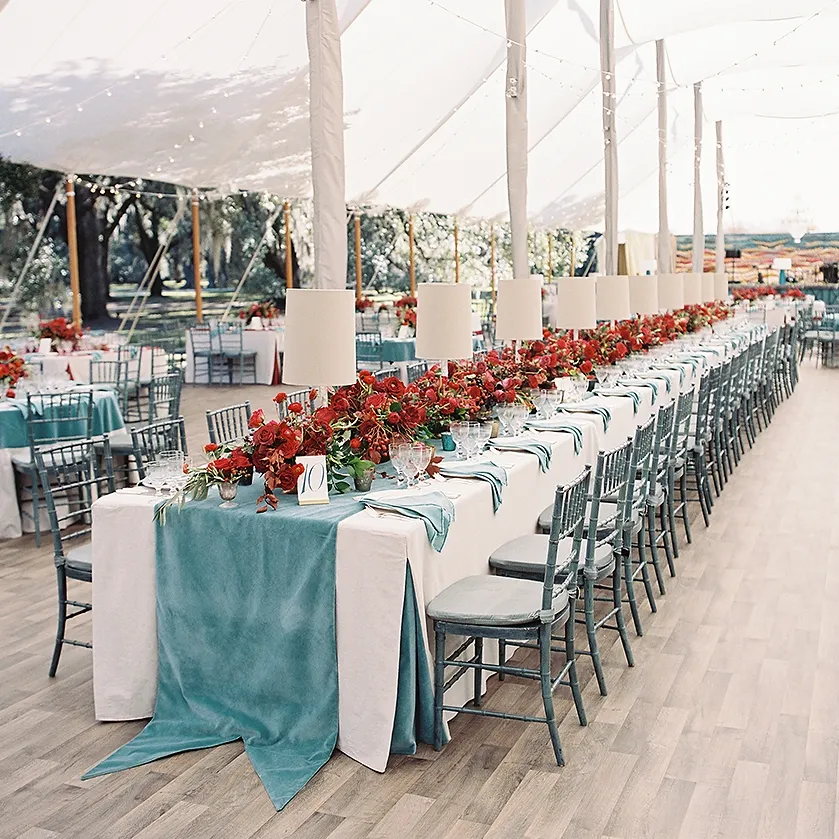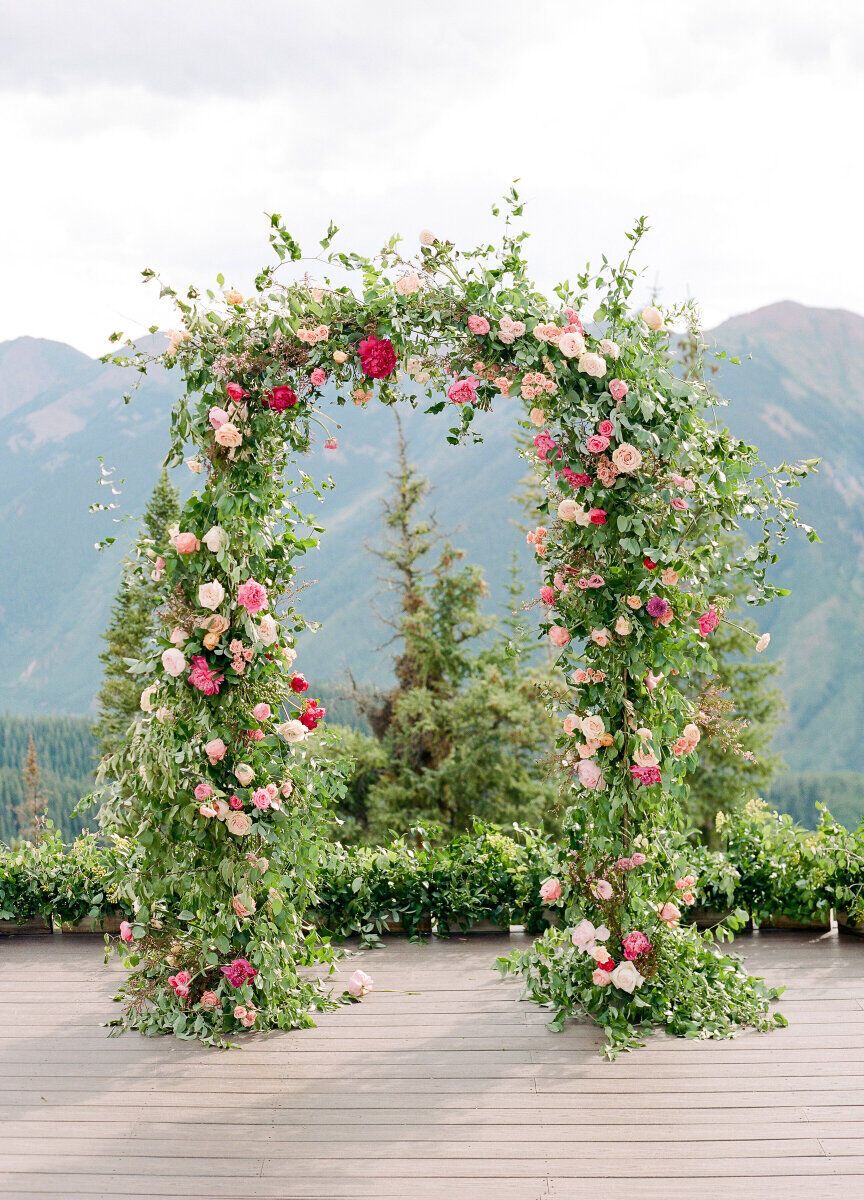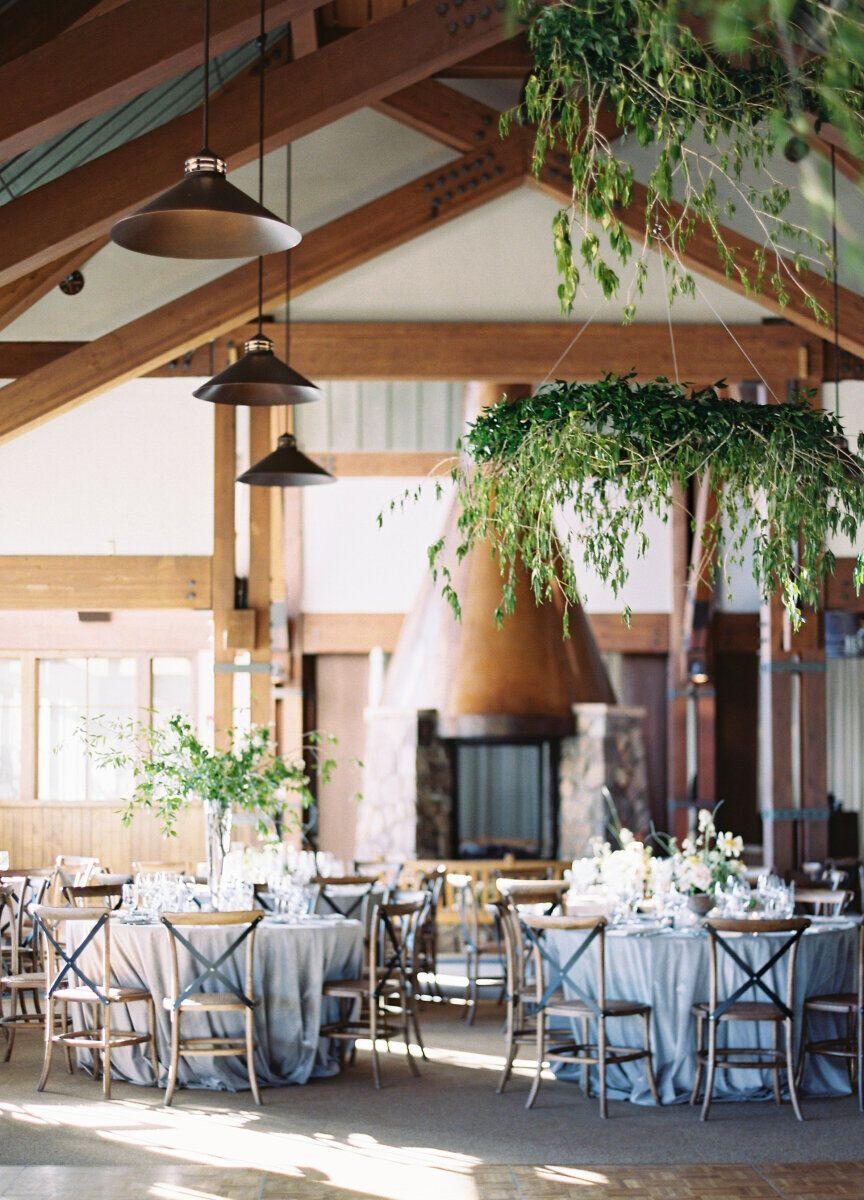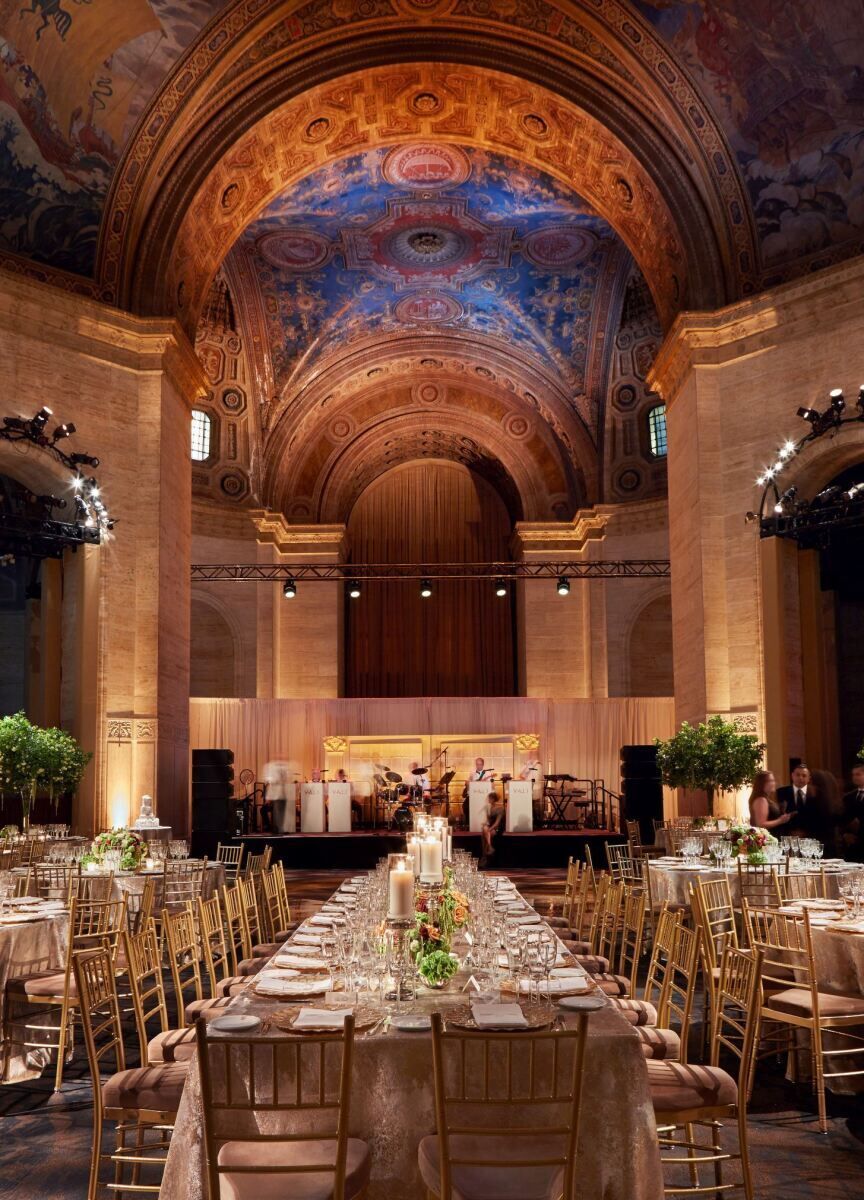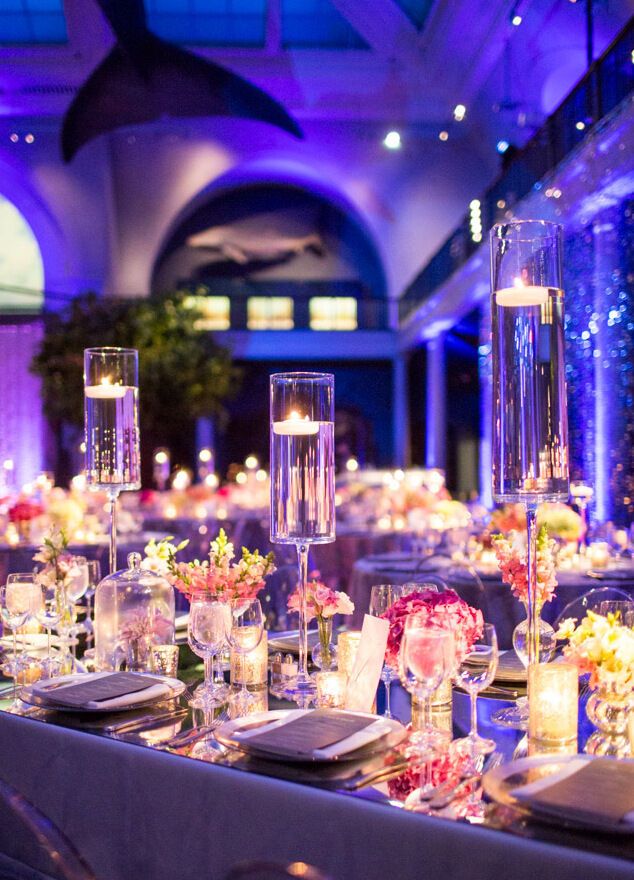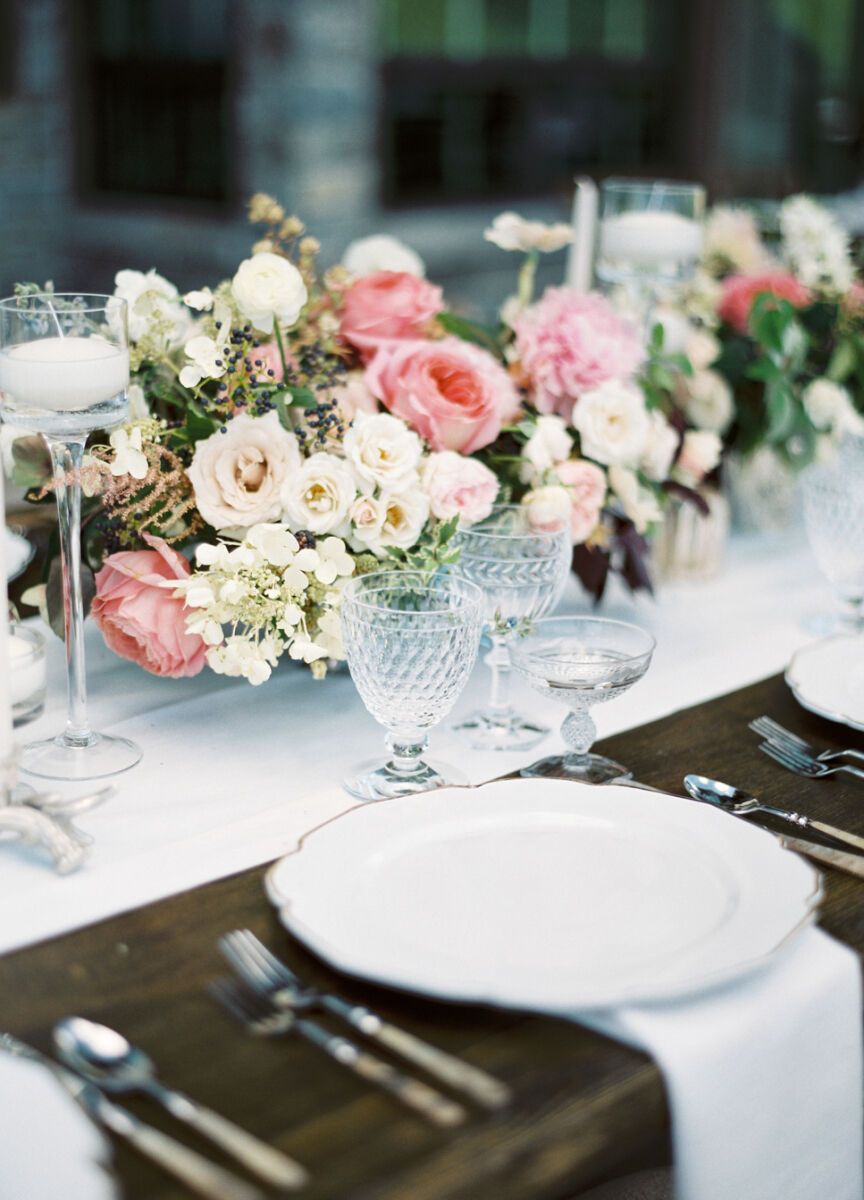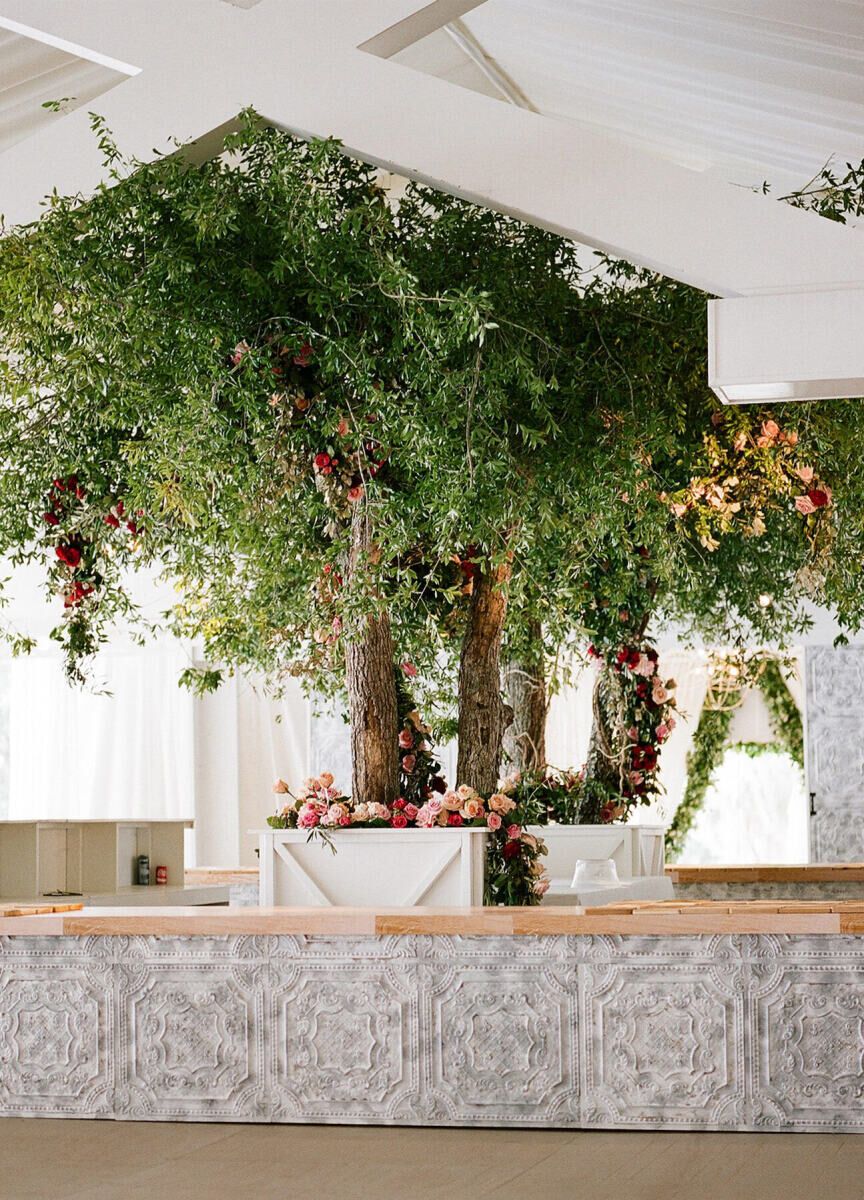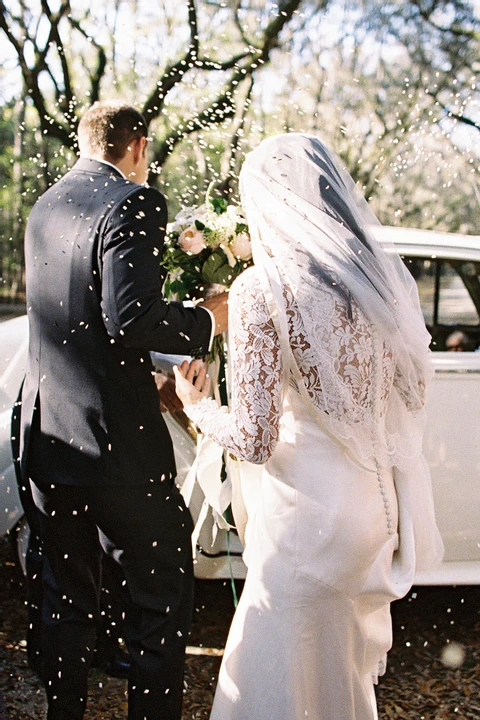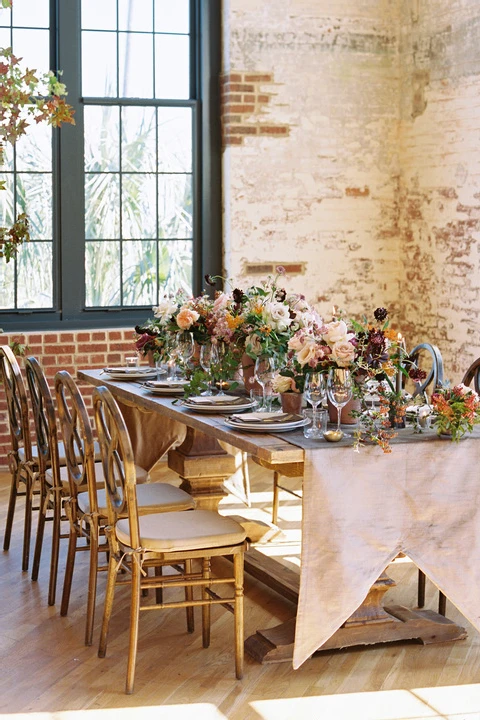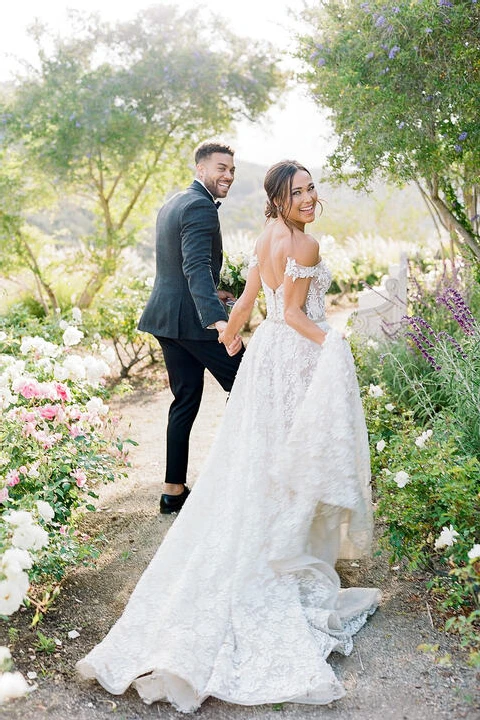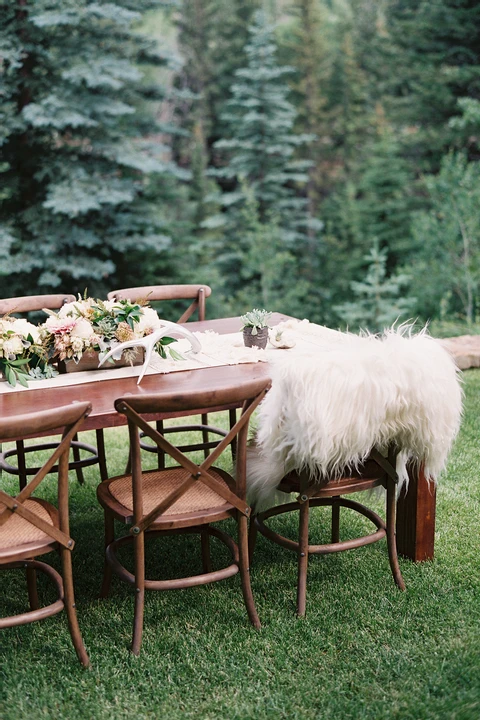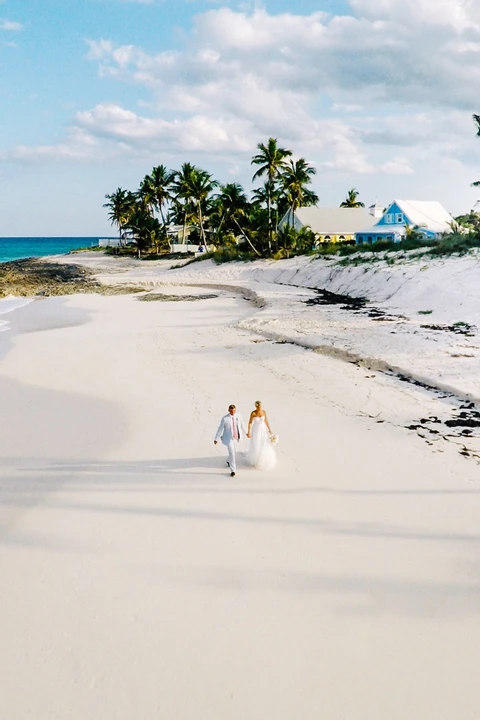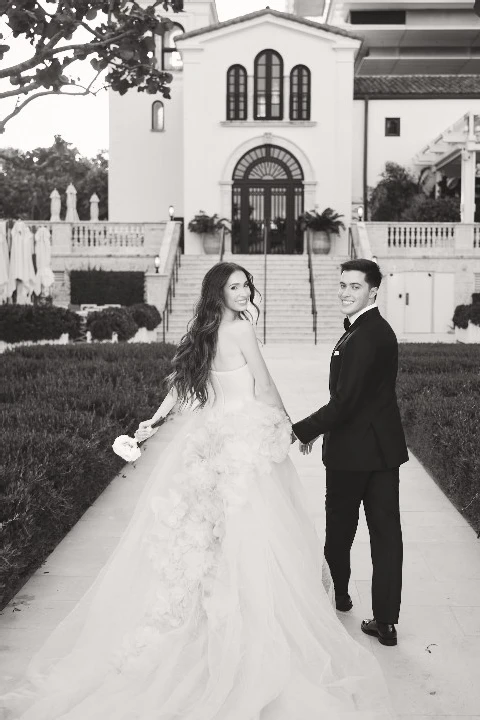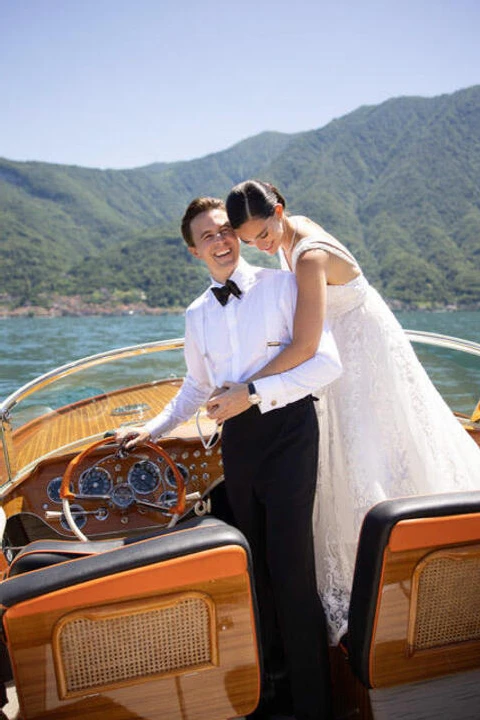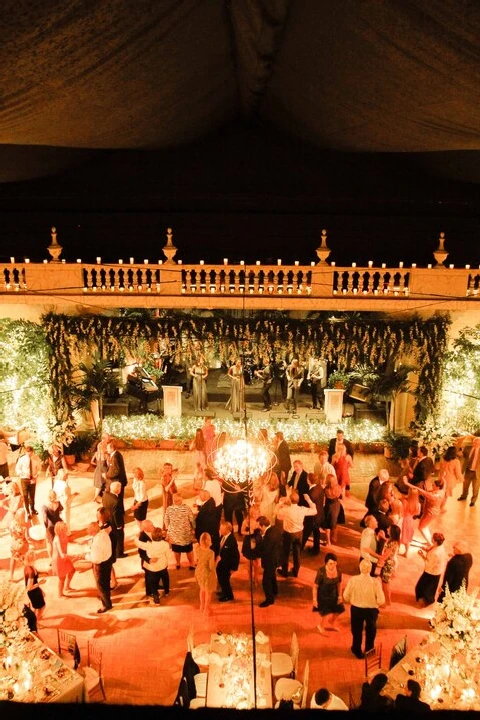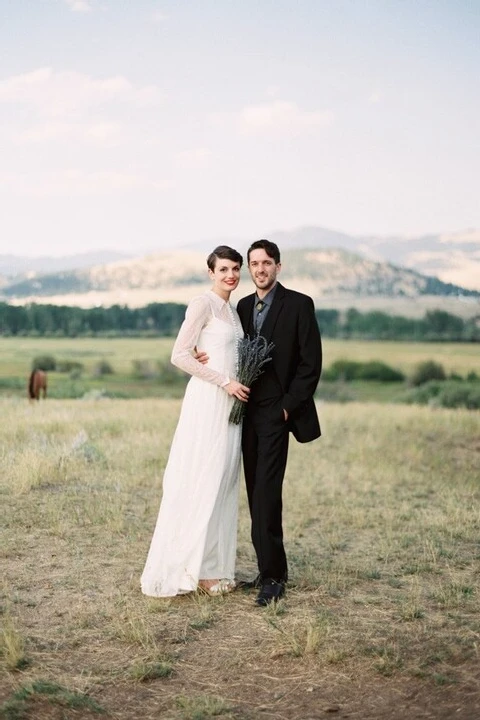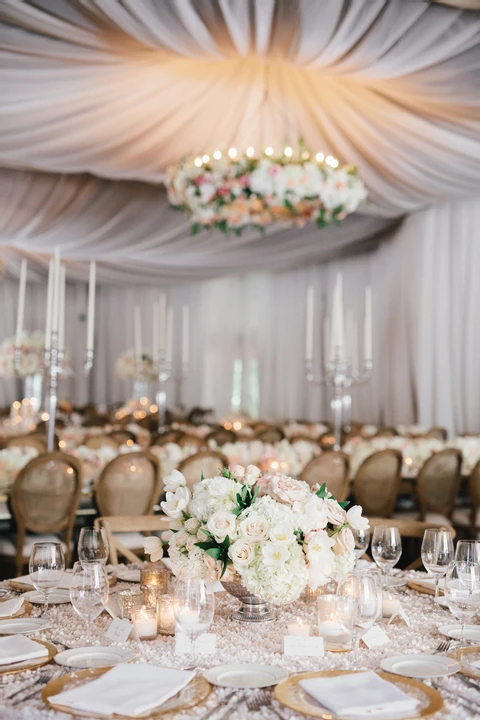The “Budget” Isn’t Actually the “Budget”
“Couples mistake the ‘party budget’ for the ‘overall budget.’ When professionals are talking about the overall number they aren’t typically including ancillary retail purchases (custom robes, elegant earrings, fab bowties), so make sure you’re clear about what your budget includes and what it doesn’t.” —Calder Clark, Owner & Creative Director of Calder Clark
Use Real Numbers
“Oftentimes couples will try to use a rule of thumb about the percent they should spend on a vendors vs. getting real pricing first. It’s always best to build your budget off of real data by talking to businesses and getting real costs to use as your financial foundation.” —Virginia Edelson, Principal of Bluebird Productions
Don’t Overlook Currency Conversions
“When planning a destination event, couples rarely think about the money conversion—they almost always try and see the budget in American dollars.” —Michelle Rago, Owner of Michelle Rago Destinations
Give Yourself a Buffer
“Always build in a buffer for miscellaneous wedding expenses. Costs for custom cocktail napkins, restroom amenities, delivery fees and other ancillary expenses can build up quickly, so it’s best to leave a safety net for these charges to be better anticipated.” —Jennifer Zabinski, Owner of Jennifer Zabinski Events
Pay Attention to the Plus Plus
“The number one mistake is not paying attention to the words ‘plus plus’ in food and beverage contracts (this can be up to a whopping 33% additional charge).” —Marcy Blum, Owner of Marcy Blum Associates
Adjust Your Expectations
“Oftentimes things cost more than people expect. When the couple’s budget doesn’t match the wedding they want to plan they either need to adjust their expectations or the number or both.” —Neillie Butler, Founder and Owner of Mariée Ami
